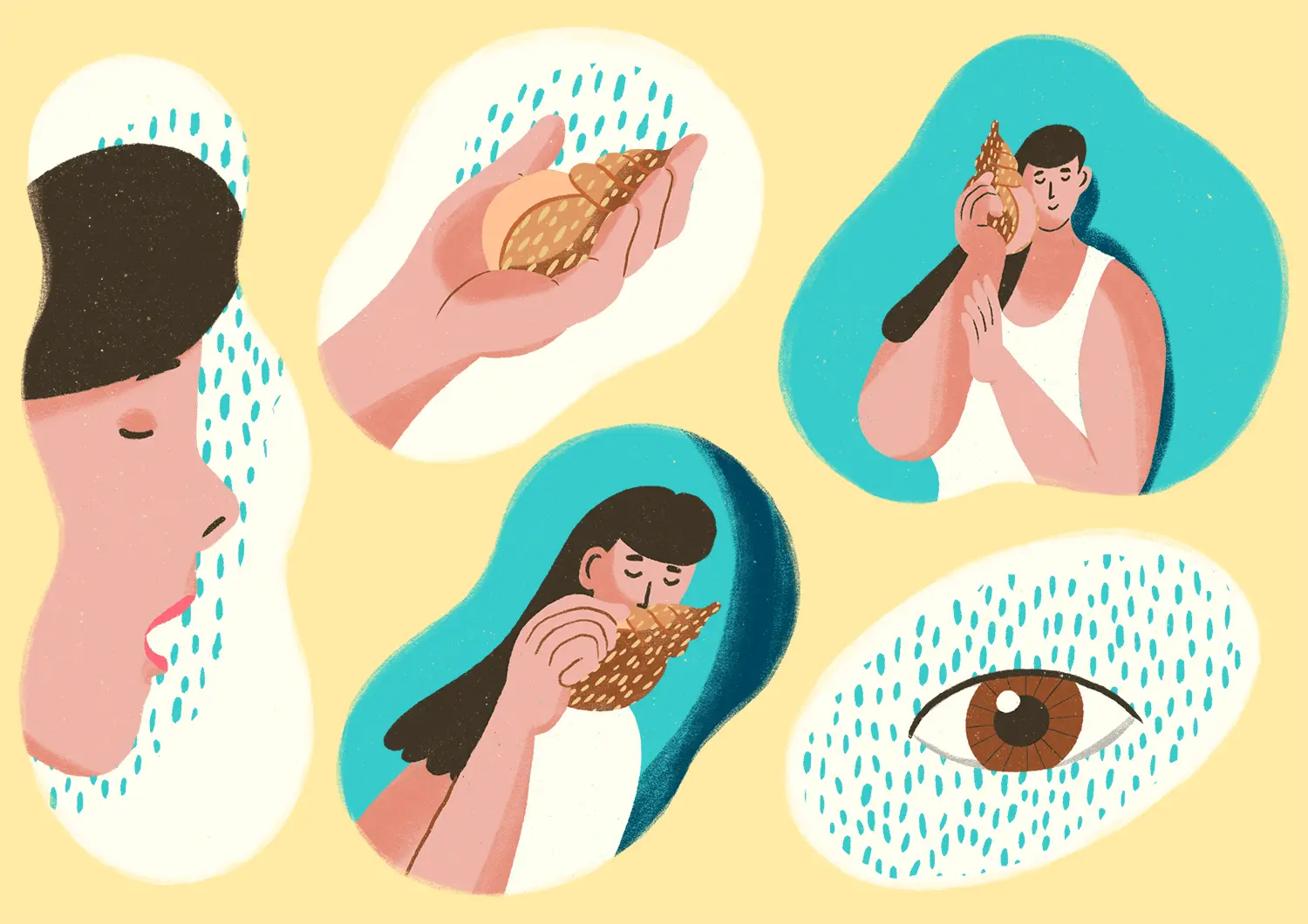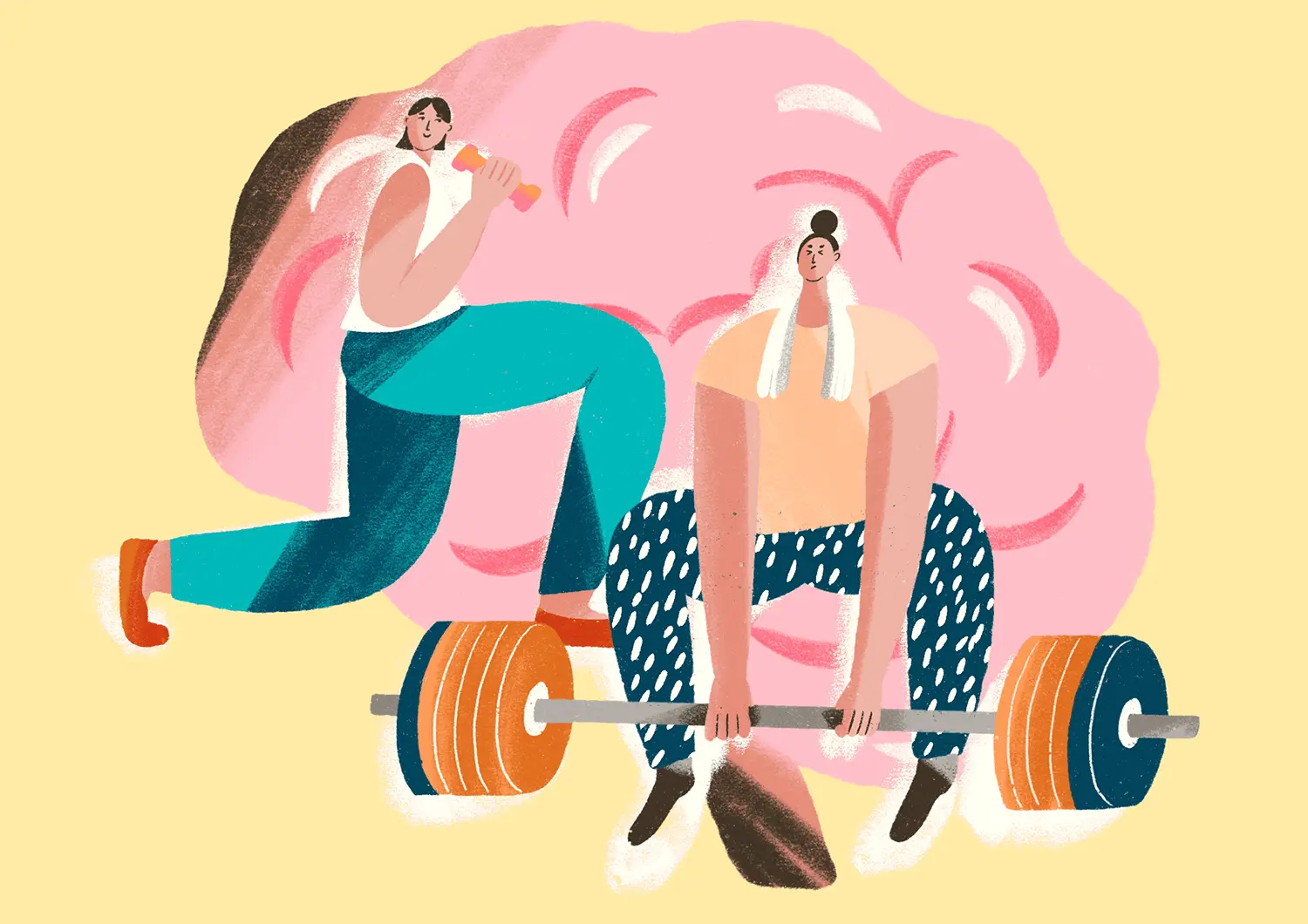Our souls make us who we are, and no two are the same. So do our approaches to self-care. It could be staying hydrated, pampering yourself with some shopping, having a run or a good time reading, connecting with friends, or enjoying a recharging nap. In recent years, mindfulness, an evidence-based approach in reducing psychological distress and regulating the body and mind has been gaining popularity in Hong Kong.
You may ask – what exactly is mindfulness? Is it related to Buddhism? Does mindfulness mean sitting and doing nothing? Is it a form of meditation? In this article, we will try to explain what mindfulness is.

What is mindfulness?
As defined by Jon Kabat-Zinn, PhD, the developer of Mindfulness-Based Stress Reduction, mindfulness is "the awareness that arises through paying attention, on purpose, in the present moment, non-judgmentally". In our daily lives, joy and sorrow and other emotions create ripples within us. We may have an instinctive urge to seize happiness and get rid of uncomfortable feelings, doing our best to pluck the day and get out of any potential funk. However, psychological research tells us that when we resist and avoid certain emotions habitually, we may have buried them even deeper. Through mindfulness, we learn to face and observe these feelings, step by step embracing and responding to these inner voices.
Mindfulness not only helps to settle our mind and enhance our mental wellness, it also cultivates our awareness in everyday life – Do you echo the feeling that life is like a recurring and monotonous journey? When we get used to the patterns of life, we may unconsciously activate our "autopilot" mode. We may feel like a robot programmed to unclutter our to-do list, feeling stuck in a rut. Through mindfulness, we nurture self-awareness, awareness of the surroundings, people, and events, delicately in touch with the present moment and practice observing our thoughts, emotions, bodily sensations, and surroundings. Eventually we can take a deeper look at ourselves, face the challenges, and heal the inner being. It is a process of mental training that fosters self-understanding, wisdom, and compassion.
Mindfulness can be applied in everyday life through breathing, walking, listening, teeth brushing, dish washing, showering, shopping, eating, and so on. Just be mindful of our connection with the world at the very moment intentionally and with openness.

From right mindfulness to mindfulness
Both mindfulness and right mindfulness are considered as "mindfulness". However, right mindfulness originates from Buddhism and is one of the practices in the Eightfold Path , the guiding principles that suggest the way to end suffering and ultimately attain enlightenment. The Buddhist "Right Mindfulness" and the other seven practices are interconnected and complementary, so it is not an independent practice.
Thích Nhất Hạnh, a Vietnamese Buddhist monk and world-renowned advocate of mindfulness, said that ''mindfulness allows you to live deeply in every moment that is given to you to live." Mindfulness is related to the Buddhist term sati, which means remembrance or the act of calling to mind. The essence is to maintaining a moment-by-moment awareness of the present, observing and understanding, ultimately living intentionally with awareness.
Is mindfulness a religious practice?
Although mindfulness has its roots in Buddhism, it has been widely studied and applied in the medical and psychology fields over the past few decades, evolving into secular practices. It was brought to scientific investigation and secular application by the American scholar, Dr. Jon Kabat-Zinn, at the Mindfulness-Based Stress Reduction Center of the University of Massachusetts Medical School.
Mindfulness is a mental state and practice that focuses on cultivating awareness of the present and is not attributed to any religion. However, different religions have similar practices, such as meditation and contemplation in Buddhism, spiritual formation in Christianity, yoga in Hinduism, and the thoughts and Qigong of Taoism in China. Therefore, regardless of the religion, anyone can practice mindfulness.
Benefits and applications of mindfulness
Since 1970’s, mindfulness has been widely studied and applied in medical and psychological settings to help promote physical and mental well-being as well as alleviate illnesses. Numerous clinical trials and scientific studies have been conducted and demonstrated that mindfulness can induce structural and neurological changes in the brain, a transformation called "Neuroplasticity". The changes include:
- Increasing grey matter in different parts of the brain, including hippocampus, insula and the posterior cingulate cortex. It helps to enhance emotional regulation and cultivate compassion.
- Decreasing grey matter density in the amygdala. It helps to enhance stress tolerance.
Further benefits of mindfulness include:
- Reduced stress, depressive and anxiety symptoms
- Better attention, comprehension, and memory
- Better sleep quality
- Improved life satisfaction
- Enhanced mental well-being for people with chronic illnesses
- Reduced physical pain and increased pain acceptance
- Higher likelihood to show compassion to oneself and to others
Practicing mindfulness can transform our minds. Continued practice brings about changes in the brain that enhance long-term physical and mental health. It takes time to practice mindfulness and it may not have an immediate effect. Yet, it can be practiced in the here and now, everywhere and all the time. Consistent practice allows us to acquire skills gradually, enabling us to respond more flexibly to day-to-day challenges and stressors. Practicing mindfulness with an attitude of curiosity and openness. If we deliberately aim to feel good, it may defeat the purpose of the practice.
Many studies have showed that online mindfulness programs are effective in reducing stress, and symptoms of depression and anxiety, and enhancing mental well-being.

JCTH+ Mindfulness-Based Training Course
In JCTH+, we offer free, evidence-supported online Mindfulness-Based Training (MBT), in-person and online mindfulness group practices and enrichment workshops. The online courses are conducted in a guided self-help format, with clinical psychologists leading you through a step-by-step process of self-discovery and cultivation of awareness through videos, audio guides, texts, exercises, questionnaires, and stories. The course comes with a personal calendar to help you plan and deepen different exercises.
At JCTH+, we provide you with interactive mindfulness practices and other related materials on:
- Mindful breathing
- Mindful listening
- Mindful eating
- Body scan
- Mindful stretching
- Sitting meditation
- Mindful observation of thoughts
- Grounding exercises (visual/ breathing / mindful walking)
- Naming (balloon)
- Loving kindness for self
- Loving kindness meditation
In our mindfulness group practices (in both online and in-person settings), we hold regular mindfulness workshops (with various practices such as meditation, mindful stretching, etc.) led by our clinical psychologists who are certified teachers of mindfulness-based training, accompanying you on the journey to tranquility.
In the TourHeart enrichment workshop, clinical psychologists will explore the relationship between mind and body across different topics such as pain management, procrastination, letting go and forgetting, grounding, etc., and use different mindfulness-based exercises with participants to try out various ways to respond to different situations and take care of ourselves.

References:
Afonso R.F., Kraft I., Aratanha M.A., & Kozasa, E.H. (2020). Neural correlates of meditation: A review of structural and functional MRI studies. Frontiers in Bioscience (Scholar Edition), 12(1), 92–115. https://doi.org/10.2741/S542
David, D.M., & Hayes, J.A. (2011). What are the benefits of mindfulness? A practice review of psychotherapy-related research. Psychotherapy, 48(2), 198-208. https://doi.org/10.1037/a0022062
Hölzel, B.K., Carmody, J., Vangel, M., Congleton, C., Yerramsetti, S.M., Gard, T., & Lazar, S.W. (2011). Mindfulness practice leads to increases in regional brain gray matter density. Psychiatry Research: Neuroimaging, 191(1), 36–43. https://doi.org/10.1016/j.pscychresns.2010.08.006
Lally, P., Van Jaarsveld, C.H.M., Potts, H.W.W., & Wardle, J. (2010). How are habits formed: Modelling habit formation in the real world. European Journal of Social Psychology, 40(6), 998-1009. https://doi.org/10.1002/ejsp.674
Tang, Y.Y., Lu, Q., Fan, M., Yang, Y., Posner, M.I. (2012). Mechanisms of white matter changes induced by meditation. Proceedings of the National Academy of Sciences, 109(26), 10570-10574. https://doi.org/10.1073/pnas.1207817109
Veehof, M.M., Oskam, M., Schreurs, K.M.G., & Bohlmeijer, E.T. (2011). Acceptance-based interventions for the treatment of chronic pain: A systematic review and meta-analysis. Pain, 152(3). 533-542. https://doi.org/10.1016/j.pain.2010.11.002
Spijkerman, M. P. J., Pots, W. T. M., & Bohlmeijer, E. (2016). Effectiveness of online mindfulness-based interventions in improving mental health: A review and meta-analysis of randomised controlled trials. Clinical Psychology Review, 45, 102-114. https://doi.org/10.1016/j.cpr.2016.03.009
Sommers-Spijkerman, M., Austin, J., Bohlmeijer, E., & Pots, W. (2021). New evidence in the booming field of online mindfulness: an updated meta-analysis of randomized controlled trials. JMIR Mental Health, 8(7), e28168. https://doi.org/10.2196/28168
Mak, W. W., Chan, A. T., Cheung, E. Y., Lin, C. L., & Ngai, K. C. (2015). Enhancing Web-based mindfulness training for mental health promotion with the health action process approach: randomized controlled trial. Journal of medical Internet research, 17(1), e8. https://doi.org/10.2196/jmir.3746
Mak, W. W., Chio, F. H., Chan, A. T., Lui, W. W., & Wu, E. K. (2017). The Efficacy of Internet-Based Mindfulness Training and Cognitive-Behavioral Training With Telephone Support in the Enhancement of Mental Health Among College Students and Young Working Adults: Randomized Controlled Trial. Journal of medical Internet research, 19(3), e84. https://doi.org/10.2196/jmir.6737
Mak, W. W., Tong, A. C., Yip, S. Y., Lui, W. W., Chio, F. H., Chan, A. T., & Wong, C. C. (2018). Efficacy and Moderation of Mobile App-Based Programs for Mindfulness-Based Training, Self-Compassion Training, and Cognitive Behavioral Psychoeducation on Mental Health: Randomized Controlled Noninferiority Trial. JMIR mental health, 5(4), e60. https://doi.org/10.2196/mental.8597
Li, A. C., Wong, K. K., Chio, F. H., Mak, W. W., & Poon, L. W. (2022). Delivering Mindfulness-Based Interventions for Insomnia, Pain, and Dysfunctional Eating Through a Text Messaging App: Three Randomized Controlled Trials Investigating the Effectiveness and Mediating Mechanisms. Journal of medical Internet research, 24(5), e30073. https://doi.org/10.2196/30073



